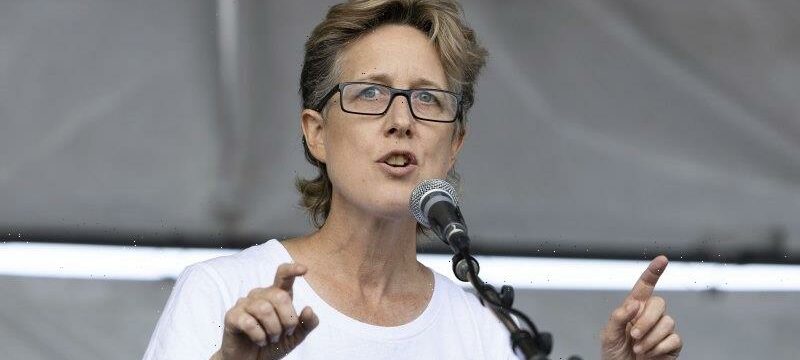The Albanese government’s jobs and skills summit is less than a month away, and some invitees are making their positions known. About 100 attendees, from business, industry and the community sector, along with state premiers, chief ministers and members of the crossbench, will kick off a national debate on a range of related issues, including unemployment, boosting productivity, securing sustainable wages growth and dealing with the skills shortage.
During the election campaign, Prime Minister Anthony Albanese argued the summit would offer an opportunity to revive the “spirit of consensus” that existed during the Hawke government era – when an accord between unions and government managed much-needed economic and social reform while keeping wages and prices under control. It was a time when compromise trumped ideology.
ACTU secretary Sally McManus says it’s no use “fiddling around the edges” of economic policy.Credit:Alex Ellinghausen
As Australia’s economy comes out of the pandemic-induced slowdown, it has hit some unexpected road bumps, most notably a persistent increase in inflation. This has led to higher interest rates and lower real wages. But even before the pandemic, the Australian economy had suffered from many years of stagnant productivity and wages growth.
What is evident is that, from a policy perspective, more of the same will not achieve a different result. The challenge of change, however, should not be underestimated. The Morrison government learnt that the hard way in 2020 when, in the face of a feared COVID-19 recession, it brought unions and the business community together to try to find common ground in overhauling the industrial relations system. It was a dismal failure. After 10 months of negotiations, the government failed to win agreement for most of its proposed changes.
This time around, Albanese is hoping for a better outcome, and in the lead-up to the summit there is no shortage of ideas.
Australian Industry Group chief executive Innes Willox has called for greater concessions in the temporary visa program to tackle skill shortages, Australian Chamber of Commerce and Industry head Andrew McKellar wants the permanent skilled migrant intake to be lifted to 200,000 for at least the next two years, and Business Council chief Jennifer Westacott has said Australia needs to be more attractive for women to work.
On Wednesday, the Australian Council of Trade Unions put forward what it says is the first in a series of proposals that should be considered at the summit, including an overhaul of the nation’s economic structures, a new tax on businesses that profit from high inflation, controls to prevent “price gouging”, and a change to the Reserve Bank’s operational strategy to emphasise employment over inflation control. ACTU secretary Sally McManus said that “to give everyone the chance to get a secure and fairly paid job … will require more than fiddling around the edges”.
Whatever you think of the ACTU’s proposals, McManus is right in one respect: lifting Australia’s economy and wages growth out of its torpor will require a prolonged effort on policy development, and may well require thinking that’s outside the current economic orthodoxy.
It will also require compromise. What allowed the climate bill to pass last week was the willingness of business, the Greens and crossbenchers to put the battles of the past behind them and reach a consensus. This can hurt. The union movement came under enormous pressure during the Accord years because it suppressed wages growth in favour of other reforms, which became known as the “social wage”.
In this context, Opposition Leader Peter Dutton and his shadow treasurer, Angus Taylor, are abrogating their responsibility to the national interest by refusing the opportunity to attend the summit. If the opposing parties simply stick to their hardline positions, then it will be a bust. Only a genuine commitment to compromise can bring about change once considered almost inconceivable.
Gay Alcorn sends an exclusive newsletter to subscribers each week. Sign up to receive her Note from the Editor.
Most Viewed in Politics
From our partners
Source: Read Full Article

